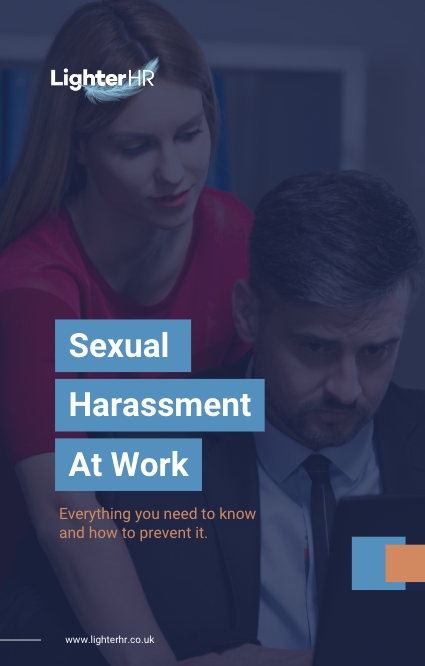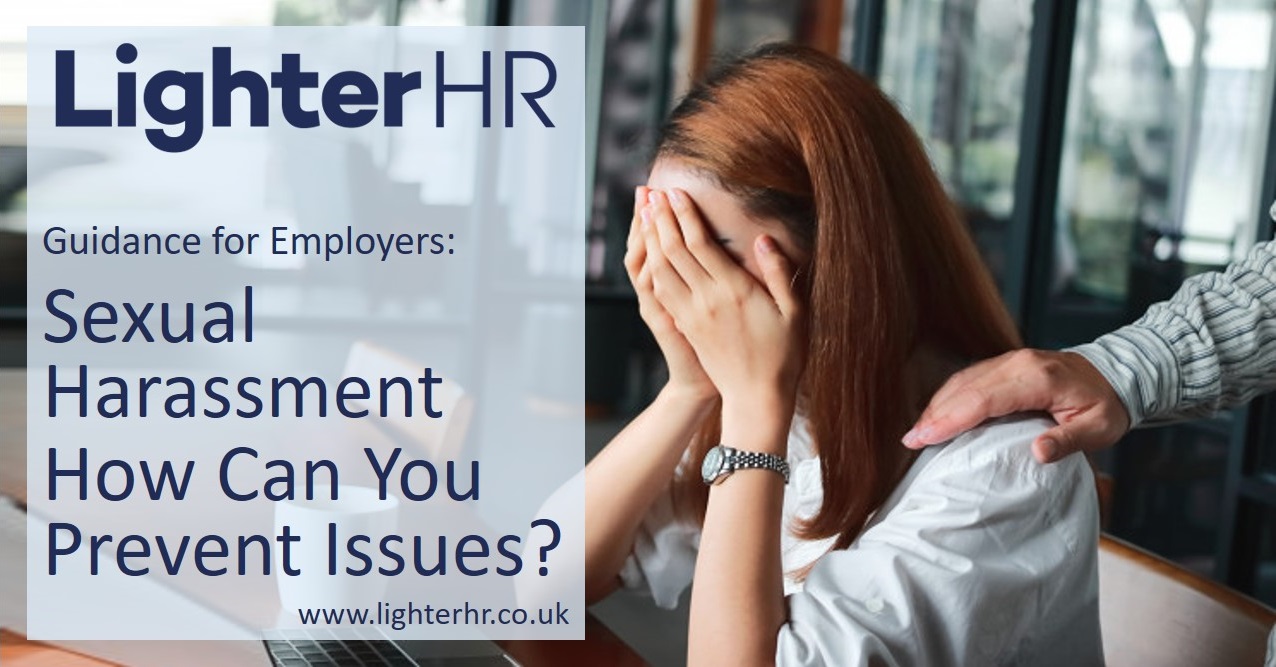
Get our complete guide to preventing Sexual Harassment at Work and how to manage issues if they arise directly to your inbox!
The media has been filled with articles on sexual harassment scandals. These have brought internal complaints policies and procedures to the attention of many HR professionals and business owners. The news stories have highlighted the importance of having clear reporting and complaints procedures.
You might not have had to deal with any harassment claims in your business but the scandals that we are seeing serve as a good reminder for employers to be more vigilant with harassment in the workplace. If you’ve never needed to deal with a complaint of sexual harassment in your business, you’re in a great place. However, it’s still important that you make sure you continue to pay attention to the issue. You need to take measures to ensure that you maintain a harassment-free workplace.
What should employers do to prevent and address sexual harassment?
1. Set Out Expectations
It’s important for senior leaders to set the tone when it comes to what is and is not acceptable behaviour. If your senior leaders engage in “banter” that is sexist and harassing in nature, you can be sure that others will follow. So, the first action that you need to take is to ensure that your senior leaders are fully aware of the potential repercussions on their behaviour.
Next, you need to make sure you have the right HR policies in place. We’d recommend having a Diversity, Equity and Inclusion Policy as a minimum. You can also implement an Anti-Harassment and Bullying Policy or a Professional Code of Conduct.
You must make sure you have clear routes that employees can follow in order to report harassing behaviour.
It’s also worth noting that, from October 2024, there is an increased responsibility on employers when it comes to protecting employees from harassment in the workplace.
2. Train Your Employees
Once you have the policies in place you need to ensure that your employees and managers are aware of them. You also need to provide training in these areas. As an employer you cannot control all of the behaviours of your employees. However, you can train your employees on the behaviours that are and are not acceptable.
Providing training serves two purposes. The first is that you are doing all you can to ensure that your maintain a workplace that is free from sexual harassment. Secondly, if one of your employees were to behave in a way that is inappropriate, you would be deemed to have taken appropriate measures to prevent such employee issues if you provide regular training on these topics to your workforce. You will be able to demonstrate that the actions of one employee were not typical for your organisation and that you had been clear that such actions were unacceptable. This would come in useful if you ever find yourself in a tribunal with allegations of harassment or discrimination.
3. Investigate Allegations Carefully
If any of your employees raises concerns whether in writing or verbally to a manager or your HR team, make sure that appropriate investigations take place. Sometimes it might not seem that there are serious issues to look into. However, you do not want to be taking a chance with ignoring a concern that might transpire to be a serious case of harassment or discrimination.
Taking allegations and concerns that are raised with you seriously, you will also be acting as a responsible employer that wants to ensure that the workplace is free from any such behaviours.
4. Keep Records of Any Actions Taken
As you may already know, should you ever have to go to an employment tribunal having written evidence of decisions, actions taken, reasons for actions taken and any important communications with employees becomes a crucial part of giving you a sound case.
If employees raise concerns verbally, you can always keep your own records of investigations that you took and the findings of any such investigations. If however, there is a more formal complaint then you must keep full records of any actions taken or important communications between everyone involved. Remember that a tribunal judge will only go by what they can see in front of them as evidence.
We truly hope that you are never in a situation where you have to deal with allegations of harassment or discrimination but if you do find yourself in such a spot, we will be happy to help you manage the whole process. We have a team of experienced consultants that in their careers have had to deal with various allegations from internal processes all the way through to employment tribunals.

Get our complete guide to preventing Sexual Harassment at Work and how to manage issues if they arise directly to your inbox!

Need help with policies and processes or dealing with a sexual harassment matter?


